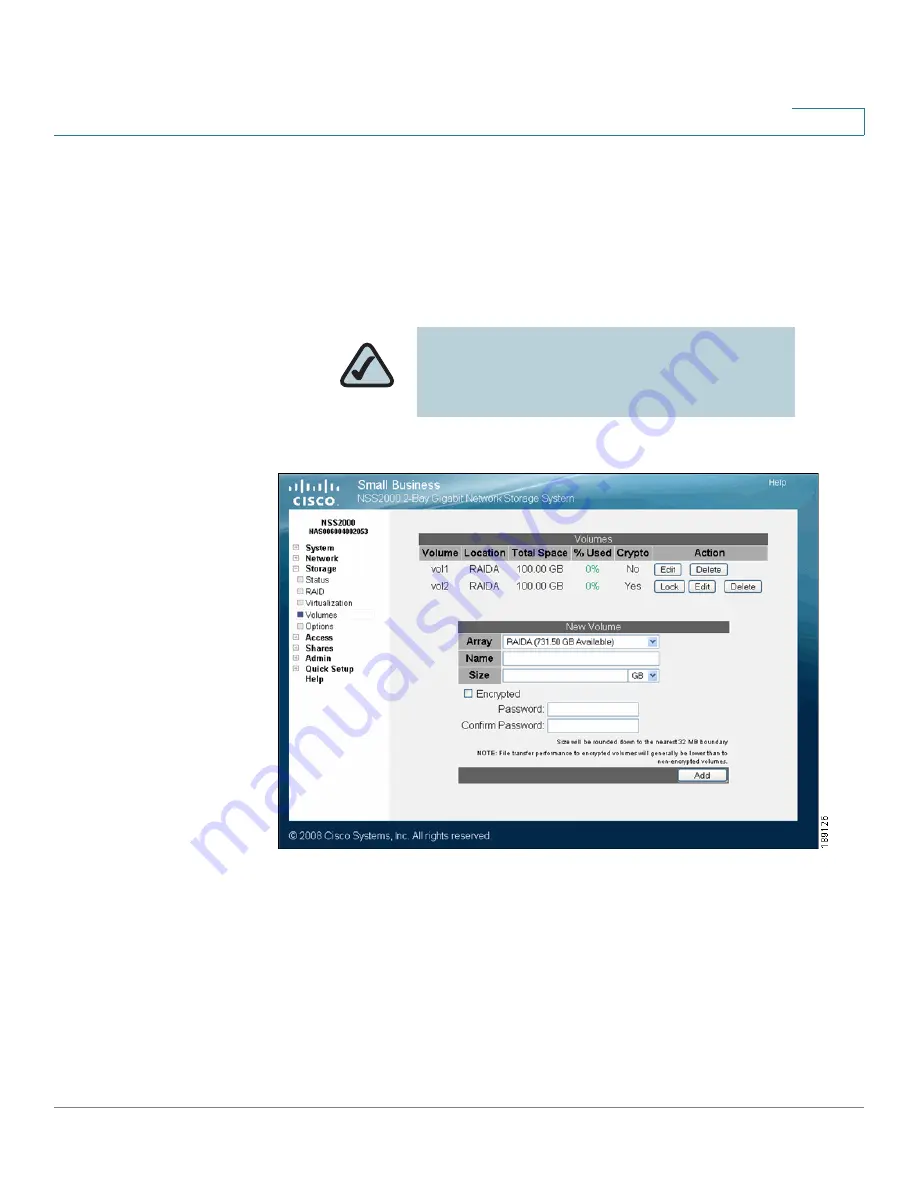
Configuring your Storage
Volume Encryption Overview
Cisco Small Business NSS2000 Series Administration Guide
60
4
Volume Encryption Overview
The Volumes page lists both the encrypted and unencrypted volumes and lets
you create a volume, and lock, unlock, or change the password for encrypted
volumes.
NOTE:
File transfer performance to encrypted
volumes is generally lower than non-encrypted
volumes.






























